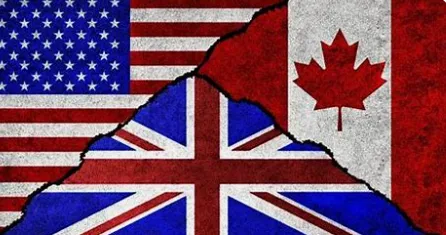
Military & War
The Hidden Toll: Content Creators Covering Military and War Topics Face Demonetization and Shadow Bans
Content creators who focus on military and war topics are increasingly worried about being demonetized, shadow banned, or even deplatformed due to the sensitive and controversial nature of their subject matter. These concerns are not unfounded-numerous creators have reported sudden drops in visibility, loss of ad revenue, and unclear enforcement of platform policies. The impact on these creators is profound, affecting not only their livelihoods but also the diversity and depth of war-related discourse online.
Why Are Military and War Creators Targeted?
Platforms like YouTube, Instagram, and TikTok use automated moderation systems and strict content guidelines to avoid hosting material that could be seen as violent, graphic, or politically sensitive. As a result, even non-graphic, educational, or analytical content about war can be suppressed or demonetized. For example, YouTube has demonetized hundreds of videos from channels like "The Great War" simply for using terms like "war," regardless of the historical or documentary context. Similarly, creators documenting current conflicts-such as the war in Ukraine-have seen their channels demonetized, even when their content consists of maps, interviews, or neutral analysis.
Instagram has also been shown to suppress posts related to war, even when the images are not graphic, by demoting them in feeds, deleting captions, or hiding comments-often without notifying the creator. This pattern is echoed across platforms, with creators and journalists reporting that their posts about ongoing conflicts receive far less engagement or are hidden from followers.
The Impact on Creators
Loss of Income: Demonetization strips creators of ad revenue, which is often their main source of income. This can happen suddenly and without clear explanation, leaving creators financially vulnerable and unable to plan for the future
Reduced Visibility: Shadow banning means that content is less likely to appear in search results, recommendations, or followers’ feeds. This drastically reduces engagement, making it harder for creators to reach their audience and grow their channels
Self-Censorship: Fearing penalties, many creators avoid certain topics, language, or imagery-even when their content is educational or newsworthy. This leads to self-censorship and a narrowing of perspectives available to the public
Uncertainty and Stress: The lack of transparency around moderation and monetization policies creates anxiety and uncertainty. Creators often do not know which rules they have violated or how to avoid future penalties, making it difficult to sustain their work
Suppression of Important Voices: When platforms suppress or demonetize content about war, they risk silencing independent reporting, citizen journalism, and firsthand accounts from conflict zones. This can limit public understanding of complex global events and reduce the diversity of voices in the digital public sphere
A Case in Point: The Ukraine War and "War Influencers"
The recent war in Ukraine has given rise to a new generation of "war influencers" who use platforms like TikTok to document life in conflict zones, share personal stories, and provide analysis. These creators face unique challenges as they navigate the fine line between raising awareness and triggering platform algorithms that may suppress their content4. Despite their efforts to use creative storytelling and adapt to platform norms, many find that their reach and monetization are limited by opaque moderation systems.
Conclusion
For creators covering military and war topics, the threat of demonetization, shadow banning, or deplatforming is a constant concern. These practices not only jeopardize their financial stability but also undermine the diversity and quality of war-related content available to global audiences. As platforms continue to refine their moderation systems, greater transparency and nuance are urgently needed to ensure that important voices are not lost in the algorithmic crossfire.


